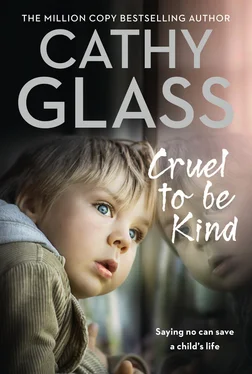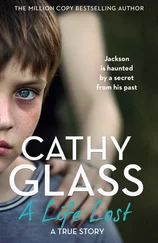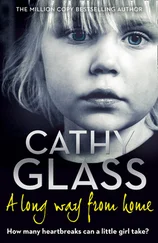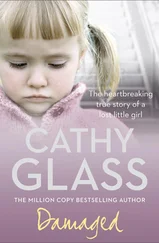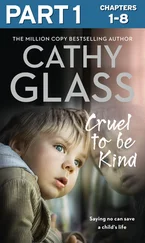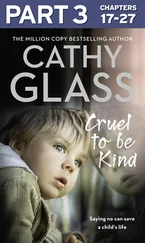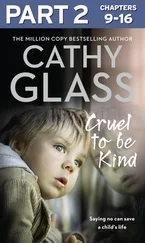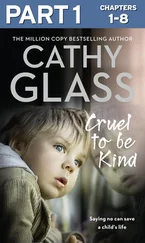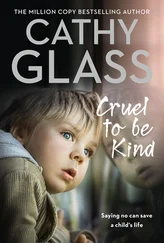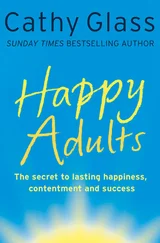Jill came in from the garden. ‘Well, have a good evening then,’ she said to Max. He stayed on the sofa while I saw Jill to the front door. ‘I’ll phone you tomorrow to see what sort of night you’ve had,’ she said. ‘If you need to speak to someone tonight, phone our out-of-hours number.’ I doubted I would with Max, but it was reassuring to know that twenty-four-hour support was always available from the agency if necessary.
Having said goodbye to Jill, I returned to the living room to check on Max, and as soon as he saw me he told me again that he was hungry. ‘We’ll have dinner now,’ I said. ‘While I dish it up, would you like to go into the garden and tell Adrian and Paula dinner is ready?’ I could have called them myself through the open patio doors, but I find that if a child is involved in the routine of the house, they feel included and settle more quickly.
Max was happy to oblige and hauled himself off the sofa, while I went into the kitchen. Taking the oven gloves from their hook, I opened the oven door and carefully lifted out the piping-hot casserole. I set it on the work surface and began dishing it onto four plates. The children appeared and I asked them to wash their hands at the sink before dinner. I finished dishing up and returned the rest of the casserole to the oven, then went to the table and suggested to Max that he might like to sit next to Adrian. We tend to keep the same places at the meal table. ‘I’m hungry, Mum,’ Adrian said as they sat down, rubbing his tummy theatrically.
‘So am I,’ Max agreed, copying him with a rub of his tum.
I carefully carried the plates of food in from the kitchen and set them in front of each child. I added a basket containing chunks of warm baguette to the centre of the table and told them to help themselves. By the time I’d sat down with my plate Max had taken three large chunks of bread, which he propped on the side of his plate. ‘There’s plenty,’ I said, for I wondered if he thought I might run out. I’d fostered children before who’d been so underfed at home that they grabbed and hoarded food whenever the opportunity arose, although I didn’t think this was true in Max’s case – it seemed to be more habit.
We all began eating and for a while all that could be heard was the chink of cutlery on china as three hungry children ate. When a child first arrives mealtimes can sometimes be awkward for them. Eating is an intimate and social occasion, with unspoken but assumed rules that can differ from household to household. I didn’t even know if Max ate at a table at home; many children don’t. And sitting close to people you’ve only just met can be embarrassing and make you feel self-conscious. I’d looked after children who felt so uncomfortable to begin with that they ate next to nothing for the first few days, and it’s very worrying. Max showed no sign of being self-conscious, though, and ate confidently and heartily, mopping up the last of the gravy with another chunk of bread he took from the basket. Adrian finished at the same time and asked if there were seconds. He knew there would be.
‘Yes, of course,’ I said. I stood and picked up his plate. ‘Max, would you like a second helping too?’
‘Yes, please,’ he said, and passed me his plate. Paula and I were still finishing ours.
I carried the plates to the kitchen, dished up seconds and also cut up some more bread, which I placed in the basket.
‘Thank you,’ Max said as I set his plate in front of him. He took some more bread, as did Adrian, and we all continued eating.
Paula is a bit of a slow eater and was still working on her first helping as both the boys came to the end of their second. Adrian sat back with a sigh of contentment and, patting his stomach, said, ‘I’m stuffed.’
‘Full,’ I corrected.
Max was looking at me expectantly. ‘Is there any more?’ he asked.
‘There is a little. But leave some room for the ice cream you wanted.’
‘I’ve always got room for ice cream,’ he said, with a small smile. It was a passing reference to him being overweight, but I didn’t comment. I checked with Paula that she didn’t want any more and then with mixed feelings spooned the last of the casserole onto Max’s plate.
‘Thank you,’ he said. He began eating with the same urgency as he had the first serving, although I couldn’t see how he could still be hungry.
Feeding one’s family is laden with emotion unconnected with the food itself. As well as providing sustenance, cooking is a labour of love, and while I was pleased Max was enjoying the meal I’d made, I wondered how much of a disservice I was doing him by allowing him a third helping and all that bread, given his obesity. Wouldn’t it have been kinder – and better for his long-term health – to refuse him a third helping and limit the amount of bread he’d eaten? But as this was his first meal with us I didn’t think it appropriate to do so now, as it would have drawn attention to his need to diet. Similarly, when Max finished his main course and asked if it was time for the ice cream now, I said yes and dished it up. Two scoops for each child, but I didn’t offer second helpings.
By the time we’d finished eating it was after seven o’clock and time for Paula’s bed. I usually took the children up to bed in age-ascending order, so Paula, the youngest, would go first, then Max and Adrian. I explained to Max it was Paula’s bedtime and asked him what he usually did at home in the evening before bed. I try to follow the routine the child has been used to at home as much as possible to minimize the disruption. Max said he read his book and it was in his school bag.
‘Excellent,’ I said. ‘Adrian enjoys reading too. Perhaps you’d both like to sit in the living room and read while I take Paula up?’
Both boys fetched their school bags from the hall, sat side by side on the sofa and took out their reading books.
‘What are you reading?’ Adrian asked Max, interested.
‘ James and the Giant Peach ,’ Max said, showing him the front cover of the children’s classic. It was quite advanced for the average six-year-old; Adrian, older, had read it earlier in the year.
‘Are you enjoying the book?’ I asked Max.
‘Yes. I like Roald Dahl.’
‘So do I,’ Adrian said, turning to him enthusiastically. ‘James’s aunts, Spiker and Sponge, were horrible to him,’ he added, referring to James and the Giant Peach . ‘I’m glad he got away from them.’
Max agreed.
‘Have you read Charlie and the Chocolate Factory ?’ Adrian asked.
‘Not yet, but I’ve read George’s Marvellous Medicine , and The Twits .’
‘ The Twits is so funny,’ Adrian laughed. And so they began a discussion about Roald Dahl books.
They paused to say goodnight to Paula and we left them sitting on the sofa, discussing books and with the still-warm evening air drifting in through the open patio doors. I was pleased Max liked reading. I try to interest all the children I foster in books – with varying degrees of success – but Max was one of the few children who’d arrived with a passion for them. It was only later I discovered that there was another, more disturbing reason for him wanting to escape into books.
Chapter Five
While I was upstairs helping Paula get ready for bed I left her in the bathroom brushing her teeth for a few minutes and went into my bedroom to find some more pyjamas for Max. I took all the large sizes of pyjamas from the ottoman, holding them up as I went to see if they would fit him. Usually I’m quite good at judging a child’s size, but in Max’s case I had absolutely no idea. The ones that had 8–9 years old on the label seemed too long in the leg but not wide enough around the middle. The next size up, 10–11, seemed ridiculously big for a six-year-old, and 12–13 was gigantic. I couldn’t decide, so I carried them all into Max’s room for him to try on at bedtime, and removed the pair I’d previously put out.
Читать дальше
